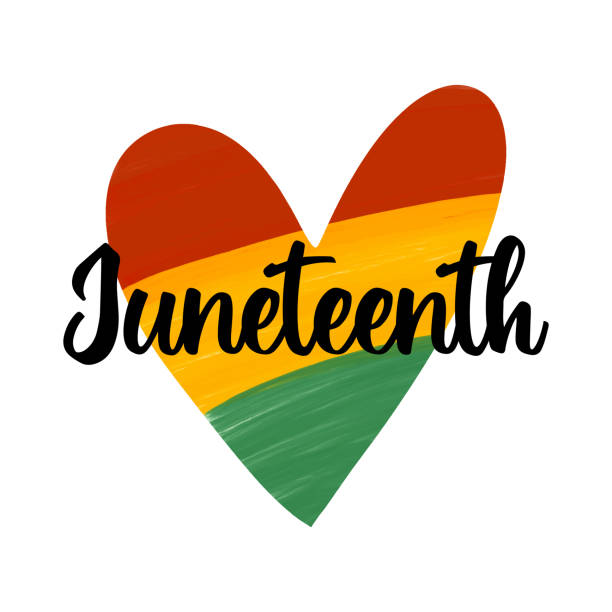Because if America were a group project, someone definitely forgot to hit “send.”
Let’s talk about Juneteenth. You may know it as a federal holiday, a cookout staple, or maybe the day Target puts all their red, black, and green merch on display. But Juneteenth is more than a hashtag or a long weekend—it’s one of the most powerful, poignant, and very human chapters in America’s ongoing story of freedom.
So let’s break it down: what happened, why it still matters, and how a two-and-a-half-year delay turned into a day of joy, reflection, and (yes) barbecue.

June 19, 1865: Better Late Than Never
Here’s the headline: Juneteenth marks the day enslaved people in Galveston, Texas were finally told they were free—a full two and a half years after the Emancipation Proclamation was signed by Abraham Lincoln.
Let that sink in.
Imagine someone tells you your student loans were forgiven... 30 months ago... and you’ve still been paying them this whole time. Now crank the stakes up to “literal human freedom” and you’re starting to get the vibe.
On June 19, 1865, Union General Gordon Granger arrived in Galveston and issued General Order No. 3, officially announcing that all enslaved people were free. And that day became known as “Juneteenth” (June + Nineteenth = the most efficient holiday name ever).
But Wait, Wasn’t Slavery Already Over?
Yes… and no.
President Lincoln issued the Emancipation Proclamation on January 1, 1863. It declared enslaved people in Confederate states to be free. Great in theory—but here's the catch: it only applied to places the Union didn’t yet control.
So in practice? Freedom rolled out at the pace of a marching army. It wasn’t until the Union took back territory that emancipation actually happened on the ground. And Texas? Texas was far away, rural, and full of people very interested in ignoring emancipation for as long as possible.
Thus: freedom delayed.
From Tragedy to Tradition
Despite the delay, June 19 became a day of joy, resistance, and remembrance. Newly freed Black Texans began marking the day with parades, music, church services, and—most iconically—barbecue. (If your Juneteenth doesn’t smell like smoked brisket and potato salad, I regret to inform you: you may be doing it wrong.)
These celebrations weren’t just about good vibes—they were a declaration: We’re here. We’re free. And we remember.
Over the years, Juneteenth spread beyond Texas, especially as Black families moved across the country during the Great Migration. It became a deeply rooted cultural holiday, even if most textbooks (and many Americans) ignored it completely.
Why It Took Until 2021 to Go National
It’s wild to think that Juneteenth didn’t become a federal holiday until 2021, when President Biden signed it into law. That made it the first new national holiday since Martin Luther King Jr. Day in 1983.
So what changed?
In short: people paid attention. After the murder of George Floyd in 2020 and the racial justice protests that followed, many Americans started asking tougher questions about history, race, and what we choose to commemorate.
Juneteenth wasn’t just a feel-good story—it was a necessary reckoning with how uneven freedom has always been in the U.S.
And finally, lawmakers did something rare: they mostly agreed on something. The bill passed the Senate unanimously, and the House voted 415 to 14. (Yes, those 14 are real people, and yes, they’re probably not invited to the cookout.)
Red Soda and Symbolism
Juneteenth traditions vary, but a few things are pretty universal:
Red food & drink – Think red velvet cake, watermelon, strawberry soda. Red symbolizes resilience and the bloodshed of enslaved people who never saw freedom.
Community cookouts – Because nothing says resistance like a full plate of ribs and cornbread.
Storytelling & education – From church services to historical reenactments, Juneteenth is about passing down the truth that schools often skipped.
It’s a day where joy is resistance. Where celebration is an act of remembrance.
Why Juneteenth Still Matters (Spoiler: A Lot)
Juneteenth reminds us that freedom in America has never been simple, quick, or evenly distributed. And it forces us to ask: What does freedom actually mean if people aren’t told they have it? If they can’t access it in practice?
Today, we still grapple with echoes of that delay:
Voter suppression
Economic disparities
Policing and mass incarceration
Erasure of Black history
So Juneteenth isn’t just a “Black Fourth of July.” It’s a call to reflect on what freedom really looks like—and who still needs more of it.
Final Thoughts: Freedom Is a Work in Progress
Juneteenth isn’t about guilt, and it’s not about perfection. It’s about truth—and the power of telling it, even when it’s inconvenient.
It’s about celebrating survival, honoring legacy, and building a country where freedom doesn’t come with an expiration date—or a 30-month delay.
So this year, whether you’re marching in a parade, cracking a cold red soda, or just learning about General Order No. 3 for the first time—know this: You’re participating in a living, breathing part of American history.
And hey—if it includes barbecue? Even better.
Comments
Post a Comment